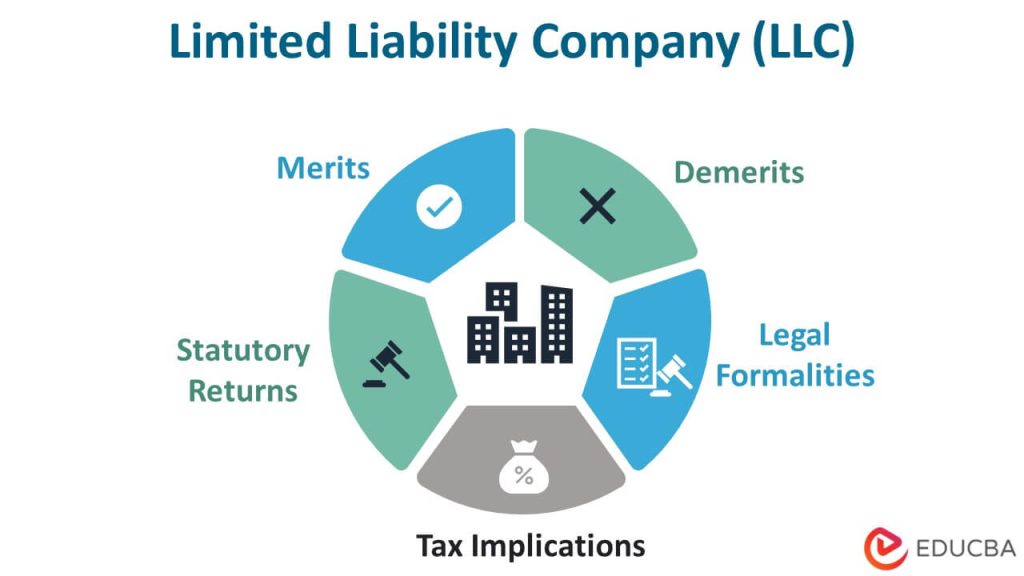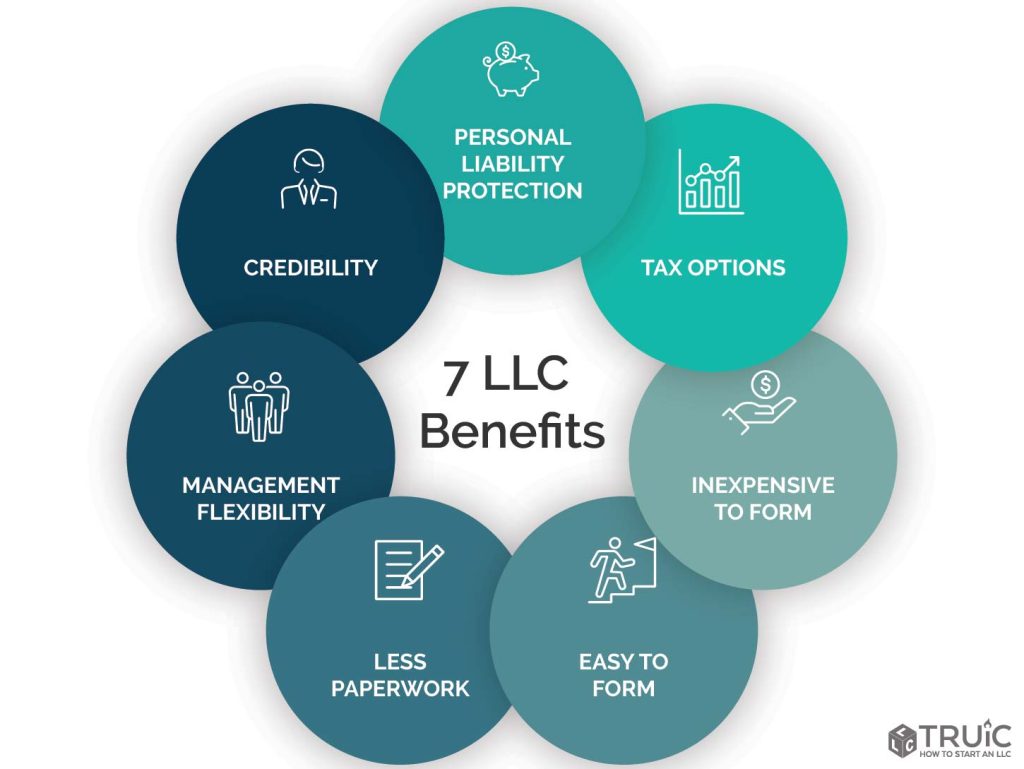One of the biggest challenges when starting a business is deciding on the right organizational structure for your company. Do you want to be a sole proprietor? Partnership? A limited liability company (LLC) is a business structure that combines the elements of a corporation and a partnership. Many small business owners wonder if they should form a limited liability company for their business to formalize their operations. The following article will answer your questions.
What is a limited liability company?
A limited liability company (LLC) is a business structure for privately held companies in the United States, a corporation that combines aspects of partnership and corporation. Limited liability companies benefit from the flexibility and smooth taxation of partnerships and sole proprietorships while maintaining the limited liability status of corporations. In the event of legal action or business failure, the liability rests with the company and not its constituent partners or shareholders.

Types of limited liability companies
Single Member LLC
A single member limited liability company, as the name suggests, has only one owner. Similar to a sole proprietorship, the owner is directly responsible for the company’s internal transactions and taxes owed by the company. This is considered the most popular and cost-effective type of company. There is also a significant reduction in the amount of paperwork required.
Multi-member LLC
A limited liability company (LLC) with two or more owners, also referred to as “members,” is referred to as a multi-member LLC. According to their ownership percentages as outlined in the operating agreement of the company, the members divide gains and losses. A multi-member LLC offers its owners limited personal liability protection, meaning their private assets are shielded from corporate debts and obligations, much like a single-member LLC does.
Professional Limited Liability Company (PLLC)
A professional limited liability company differs from a regular limited liability company in that it can only be registered by those with professional licenses (doctors, lawyers, accountants, etc.). A PLLC can decide to be treated as an S Corporation for tax purposes, just like a regular limited liability company.
Series LLC (Limited Liability Company)
Series limited liability companies are business entities with a parent limited liability company and other limited liability companies below the limited liability company, their own debts and rights. An LLC has the ability to create separate chains or cells within the company, each with its own assets, management, and liability protections. The individual series within the LLC series are usually taxed separately.
Foreign LLC
A limited liability company must register as a foreign limited liability company in the other state if it is physically present there or has an economic connection there but is registered as a domestic limited liability company in the first state (s).
What is the most common LLC structure?
The multi-member LLC is the most typical type of LLC structure. When there are many owners of the business, the owners split earnings and losses in accordance with their respective ownership stakes, which are specified in the operating agreement. The multi-member LLC structure is well-liked because, in contrast to other corporate structures, it offers its owners greater freedom in terms of management and profit-sharing as well as some personal liability protection. Additionally, it offers a more clear-cut and easier approach for several people to jointly own and run a corporation.
Advantages of an LLC
- Flexible
An LLC can choose between different tax treatments. They can choose to adopt the sole proprietorship, partnership, S corporation, or C corporation tax regime. With an LLC, income is taxed only at the individual member level, rather than at the company level. - Protect
Limited liability companies also benefit from the advantages of corporations. The biggest benefit is the company’s limited liability status. The company exists as a legal entity of its own. This protects members and owners from being personally liable for the activities and debts of the business. - Consumer trust and confidence
In general, banks and consumers trust limited liability companies more than informal business arrangements such as sole proprietorships. This can destroy the company’s ability to borrow money and marketability.
Disadvantages of an LLC
- Self-employment taxes and fees
Although avoiding double taxes is advantageous for limited liability firm owners, they still have to pay self-employment tax. Due to the owner’s dual employment as an employer and employee, these taxes must be paid twice. Some states further charge an annual fee for the limited liability protections that businesses are entitled to. limited deal for their subscribers. - Comply with state law
State laws that govern limited liability companies have a significant impact on how they conduct business. For instance, some states may dissolve a limited liability company when one of its members passes away. In other states, the business will carry on as usual, and the moderator will get the deceased member’s membership shares.
Conclusion
A limited liability company (LLC) is a popular business structure that combines the liability protection of a corporation with the flexibility and tax benefits of a partnership. The owners of an LLC, called members, have limited personal liability for the company’s debts or obligations, meaning their personal assets are protected. Overall, an LLC offers a balanced mix of liability protection, tax benefits, and operational flexibility, making it a favored option for many small businesses and entrepreneurs.



